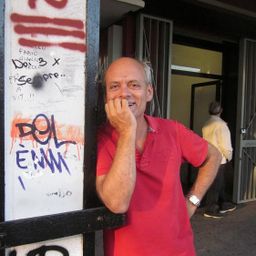L'imaginaire paradoxal des villes occidentales: patrimoine, gentrification et résistances
Mon statut pour la session
***
Contemporary towns are changing through the action of urban planners and engineers, responding to certain utopias, to urban development policies and economic interests, yet everyday commitment of inhabitants and various social actors who know the places and contribute to transform the towns are often neglected. In the deep mutations of urban landscapes and urbanity that we are witnessing, heritage plays a peculiar partition: on the one hand it is convoked by planners, architects and actors of the gentrification and of tourism, on the other hand it is used in the various forms of resistance for arguing against those policies. One might think that those issues on urban transformations would oppose two different ways of heritagization. However, in each case, rather close tales of heritage are mobilized. They evoke an imagination of the European town that is largely shared, beyond political oppositions and social stratifications: nostalgia for the popular and the working class sociability, streets supposedly more lively, authenticity of former urban and industrial landscapes, etc. In this session, we aim to examine this paradox, working from ethnographic or historic presentations.
Sous sessions
La communication proposée s’articule autour des différentes modalités de médiation d’un patrimoine, plus particulièrement urbain, sous couvert de deux dispositifs accessibles sur le Web. Nous tenterons de distinguer dans quelles mesures ces dispositifs numériques peuvent construire des médiations intéressantes et par là transformer notre regard sur le patrimoine, redessinant les contours d’un patrimoine urbain. Les dispositifs envisagés ont trait tous deux à la ville de Marseille....
When considering the theme of the global crisis in the context of contemporary Brazilian cities, we cannot escape reflecting on a set of data about the agreements and clashes among actions resulting from the experiences of their inhabitants. According to recent data from the Brazilian Institute of Geography and Statistics (IBGE 2013), since the 1960s, which was an important period for the dissemination of developmentalist ideas in Latin America, Brazil has become an increasingly urban coun...
En décembre dernier, l’Agence nationale de la rénovation urbaine (ANRU) a adopté la liste des Nouveaux Programmes de rénovation urbaine (NPNRU) en France. Deux cents quartiers, choisis au niveau national, annoncent une nouvelle décennie de transformation (2014-2024) ; 24 des 58 projets retenus pour l’Île-de-France sont situés en Seine-Saint-Denis, qui s’avère ainsi l’un des départements bénéficiant le plus de cette politique. Les NPNRU prolongent donc les 490 Programmes nationaux de rénova...
Suivant la tradition nord-américaine, les analyses et les récits qui rendent compte de la transformation des centres anciens et populaires des villes européennes associent généralement la patrimonialisation et la gentrification, mais s’attachent beaucoup moins souvent à la résistance des populations pauvres et migrantes. Or notre enquête « Rester en (centre)ville » (R.E.V.), menée de 2013 à 2015 auprès de 240 personnes dans quatre quartiers de villes capitales (Lisbonne, Vienne Bruxelles e...
Le patrimoine culturel est devenu un enjeu majeur pour renforcer l’attractivité des villes. Nous ne parlerons pas ici du développement de monuments, comme des stèles ou des statues, ni même celui des monuments historiques, avec la protection d’éléments susceptibles d’inventer une histoire nationale ou régionale, mais des constructions patrimoniales et esthétiques plus diffuses et moins juridiques qui permettent la mise en valeur des agrégats urbains, par des aménageurs mais aussi par des h...


